Si disfrutaste el encanto y la comedia de 'Tómalo O Déjalo' (1938), esta lista es para ti. Exploramos 10 películas y series que capturan su espíritu alegre, su crítica social sutil y su celebración de la individualidad. Desde clásicos atemporales hasta joyas modernas, descubre historias que te harán reír y reflexionar.
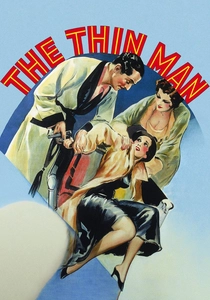
The Thin Man (1934)
Descripción: A sophisticated comedy-mystery that thrives on the chemistry between its leads and their playful banter. The film's blend of humor and intrigue aligns with the reference title's style.
Hecho: The film spawned five sequels and a television series. The term 'thin man' actually refers to a character in the story, not the detective played by William Powell.
 Ver ahora
Ver ahora
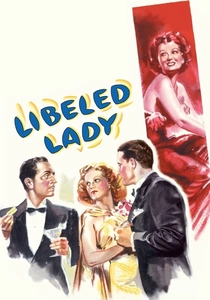
Libeled Lady (1936)
Descripción: A screwball comedy that revolves around mistaken identities and romantic entanglements, delivered with sharp wit and impeccable timing. The film's chaotic yet charming narrative is reminiscent of the reference title.
Hecho: The film was nominated for the Academy Award for Best Picture. It features an all-star cast including Jean Harlow, William Powell, Myrna Loy, and Spencer Tracy.
 Ver ahora
Ver ahora
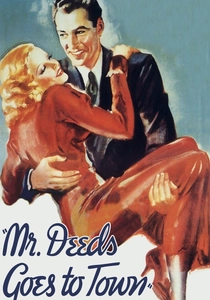
Mr. Deeds Goes to Town (1936)
Descripción: A heartwarming comedy that explores themes of kindness and simplicity triumphing over cynicism and greed, much like the reference title. It features an eccentric protagonist who brings joy and chaos to those around him.
Hecho: The film won Frank Capra his second Oscar for Best Director. It was later remade in 2002 as 'Mr. Deeds' starring Adam Sandler.
 Ver ahora
Ver ahora
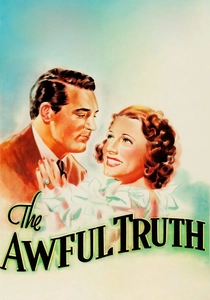
The Awful Truth (1937)
Descripción: A screwball comedy that thrives on witty dialogue and the humorous dynamics of a couple navigating love and misunderstandings. The lighthearted tone and comedic timing are reminiscent of the reference title.
Hecho: The film was nominated for six Academy Awards, including Best Picture. Cary Grant's performance in this movie solidified his status as a leading man in Hollywood.
 Ver ahora
Ver ahora
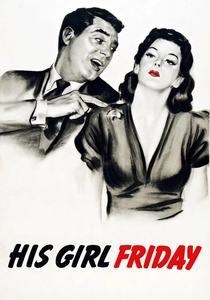
His Girl Friday (1940)
Descripción: A fast-paced, dialogue-heavy comedy that showcases the chemistry between its leads and the chaos of their professional and personal lives. The film's energetic style and comedic flair are akin to the reference title.
Hecho: The film is known for its rapid-fire dialogue, with some scenes featuring overlapping lines to mimic real conversation. It was based on the play 'The Front Page.'
 Ver ahora
Ver ahora
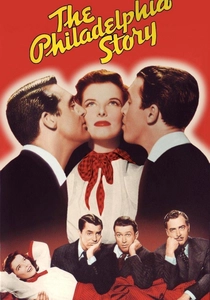
The Philadelphia Story (1940)
Descripción: A sophisticated romantic comedy that blends humor with social commentary, featuring a strong-willed protagonist and a lively ensemble cast. The film's charm and wit align closely with the reference title's style.
Hecho: Katharine Hepburn bought the rights to the play specifically to star in the film adaptation. It was later remade as the musical 'High Society' in
 Ver ahora
Ver ahora
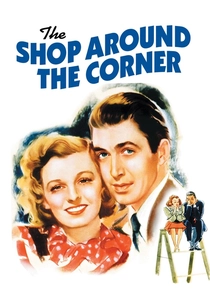
The Shop Around the Corner (1940)
Descripción: A charming romantic comedy that focuses on the lives of ordinary people and their heartfelt, often humorous interactions. The film's warmth and character-driven story are similar to the reference title.
Hecho: The film was later adapted into the musical 'In the Good Old Summertime' and inspired the modern romantic comedy 'You've Got Mail.'
 Ver ahora
Ver ahora
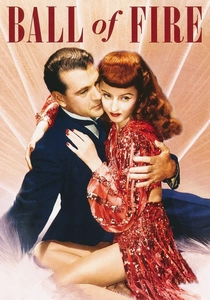
Ball of Fire (1941)
Descripción: A witty and playful comedy that pairs a straitlaced academic with a vivacious nightclub singer, leading to humorous and heartwarming moments. The film's blend of intellect and humor is reminiscent of the reference title.
Hecho: The screenplay was co-written by Billy Wilder, who later became one of Hollywood's most celebrated directors. The film was a parody of Disney's 'Snow White and the Seven Dwarfs.'
 Ver ahora
Ver ahora
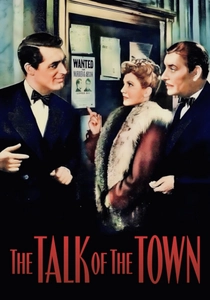
The Talk of the Town (1942)
Descripción: A comedy-drama that mixes lighthearted moments with social commentary, featuring a trio of characters whose lives intertwine in unexpected ways. The film's balance of humor and heart is similar to the reference title.
Hecho: The film was nominated for seven Academy Awards, including Best Picture. It was one of the few collaborations between Cary Grant and Jean Arthur.
 Ver ahora
Ver ahora
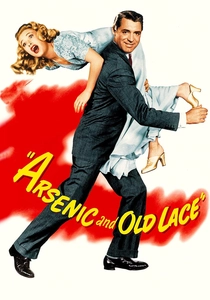
Arsenic and Old Lace (1944)
Descripción: A dark comedy that balances macabre humor with eccentric characters and chaotic situations. The film's blend of humor and absurdity mirrors the reference title's tone.
Hecho: The movie was actually filmed in 1941 but released in 1944 due to contractual obligations with the Broadway play. Cary Grant reportedly disliked his performance in the film.
 Ver ahora
Ver ahora









